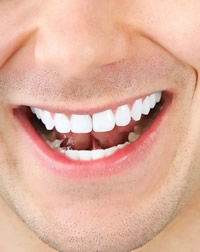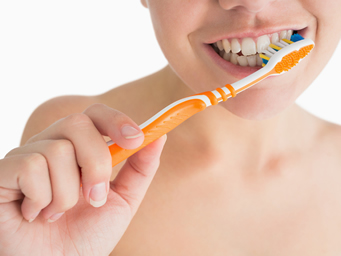
By Mike Khorev…..
 Surgical masks have been substituted by N-95 respirators, the oral drill becomes quiet and the waiting-room is emptied. Your next dental check-up might be affected the least you expected it to.
Surgical masks have been substituted by N-95 respirators, the oral drill becomes quiet and the waiting-room is emptied. Your next dental check-up might be affected the least you expected it to.
The coronavirus (COVID-19) has tested healthcare professionals and processes and has generated different reaction rates and response methods globally. The function of the dental professionals in trying to prevent COVID-19 from being transmitted is extremely important.
Although all daily dental treatment has been discontinued throughout the pandemic era in countries suffering from COVID-19 disease, the requirement for structured medical care delivered by teams with sufficient protective equipment takes as a priority. Additionally, dental professionals may lead to several health treatments.
It is not easy for significant and quick realignment of all health and support facilities. For fear of transmitting COVID-19 throughout their patients and even beyond, dental professionals felt a moral obligation to minimize routine treatment. They were rightly worried about the financial consequences. It is impossible to find credible research evidence and advice in the middle of a loaded knowledge accessible online and via social networking sites. However, rational choices must be taken.
Hence, visiting your dentist in the middle of the pandemic is a bit risky especially if there are possible cases within your area. So you need to step up and do your thing to minimize dental problems.
Here Are The Useful Tips To Maintain Good Dental Hygiene
- Avoid Consuming Food That Is Too Hot or Too Cold
One can pursue the proper procedure of dental treatment at home. If you really are delicate, avoid eating food that would be too hot or too cold, so the discomfort does not worsen. Diet management is vitally essential.
- Avoid Applying Pain Relief Balms
We can also prevent high doses of pain reliever balms. We thought it could help us minimize the problem but what we failed to recognize is that pain-relief balms contribute to the rise in inflammation.
- Brush Your Teeth Twice Daily Or Use Medicated Mouthwashes
There are also several tooth tolerance pastes which can be used before you see a dentist and hold the inflammation under management.
However, it is very important to clean your teeth. Clean your teeth every night for about 2 minutes before heading to bed and at least once on the other day. You will receive additional information from the dentist or hygienist focused on your own oral health and desires.
Also, use a fluoride-containing mouthwash that will even help avoid dental problems, but do not use mouthwash (even fluoride) right after cleaning your teeth because you can rinse out the excess fluoride contained on your teeth in the toothpaste.
For using mouthwash, pick another moment, mostly after lunch. When using a fluoride mouthwash do not drink or eat for 30 minutes.
- Wash Your Hands Frequently with Soap And Water Or An Alcohol-Based Hand Sanitizer
Handwashing with water and soap or a hand sanitizer dependent on alcohol (ABHS) is probably to be similarly successful in eliminating and inducing the transmission of viruses from either the hands, such as the coronavirus that triggers COVID-19. The most critical thing to observe is that citizens should always wash their hands using any form to stop rubbing their mouths with unwashed palms.
- Clean The Toothbrush Properly After Use to Ensure It Is Not Contaminated.
There are thousands of germs in the mouth. The toothbrushes are polluted with dirt, sweat, saliva, dental waste, and toothpaste by scraping residue and other soft particles from the teeth. A popular option for this contamination is to extensively disinfect one’s toothbrush with tap water after brushing. Restricted work has shown that the toothbrushes will stay infected with possibly pathogenic bacteria after eager clean rinsing.
 Different methods for washing, disinfecting, or sanitizing toothbrushes are established between applications, but there are no reported clinical publications that have re-contaminated the teeth, oral diseases, or other negative health effects induced by brushing with such a contaminated toothbrush.
Different methods for washing, disinfecting, or sanitizing toothbrushes are established between applications, but there are no reported clinical publications that have re-contaminated the teeth, oral diseases, or other negative health effects induced by brushing with such a contaminated toothbrush.
- The Most Common Dental Issue Is A Toothache, Consult The Dentist If There Is Uncontrolled Pain
Toothache applies to tooth decay discomfort in or around the teeth and jaws.
In other cases, you may experience a toothache. It might only be triggered but some ache remains longer than expected and unbearable. This can cause pain to worsen if you eat or drink, especially whether it’s cold or hot.
There might also be mild to extreme discomfort. It could feel “clean” and unexpectedly begin. In the night it might be worse, especially if you lie down. The pain sometimes can begin with a missing filling or chipped tooth. It can also be tough to determine whether your upper or lower teeth are painful. The discomfort will also sound like it emerges from the ear whether it involves a lower molar tooth.
If you’ve experienced toothache for more than one to two days, contact the dentist and get it checked as early as possible. The earlier you ignore this, the harder it is. If you don’t control your toothache, the pulp from within your tooth will sooner or later become susceptible to infection. Typically, this may end in an oral abscess with extreme and persistent trembling pain.
Painkillers including paracetamol and ibuprofen will decrease pain and nausea as you prepare for an appointment. Aspirin will not be issued to children younger than 16 years.
Overall, the least that we could do to protect ourselves from the threat of the virus is by simply staying at home. Hence, cosmetic dental appointments must be postponed unless it has been proven safe to book a virtual online consultation. To prevent urgent necessity, taking care of your dental health while staying at home is indeed life-saving.
